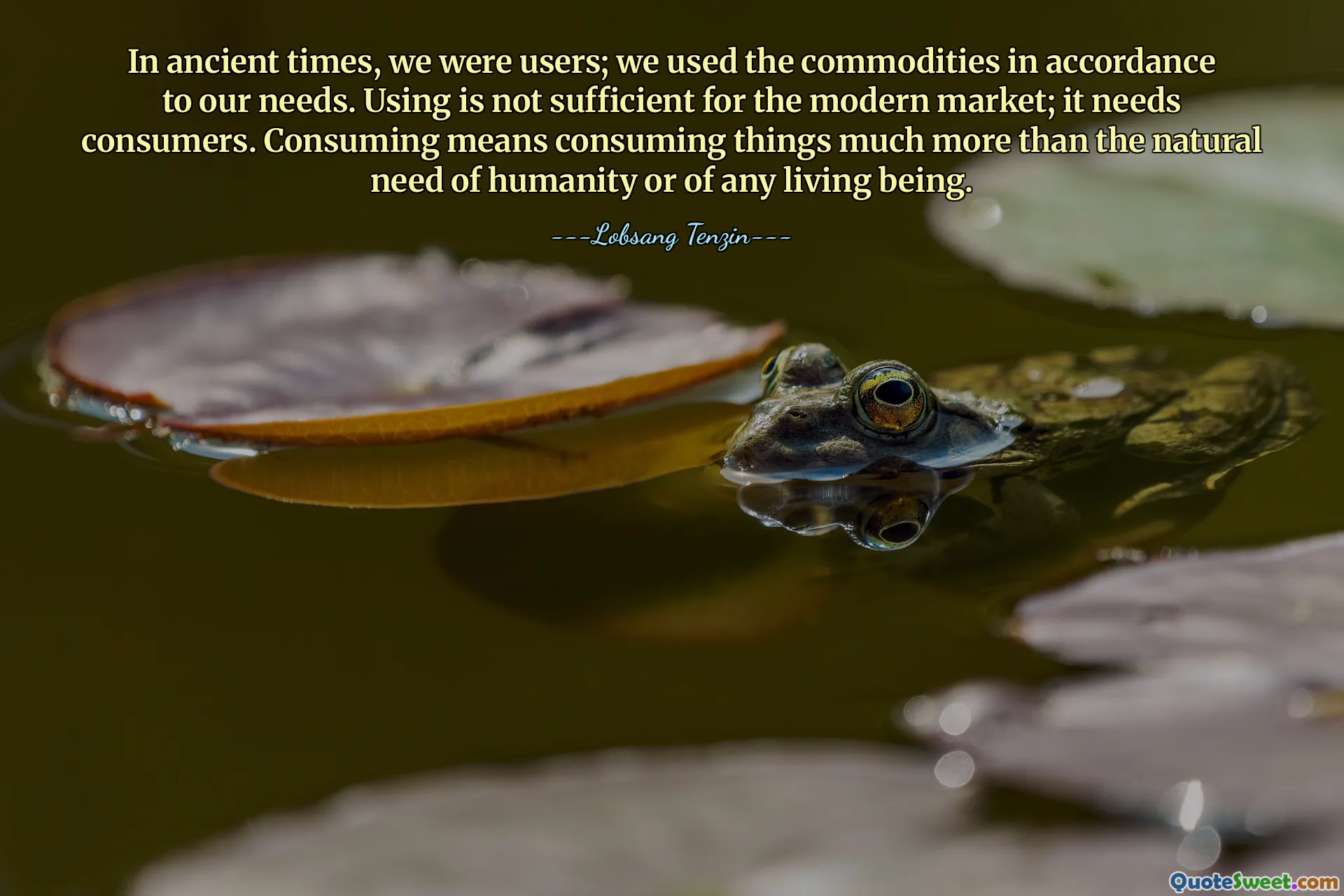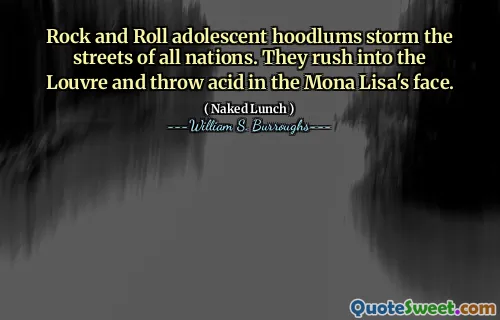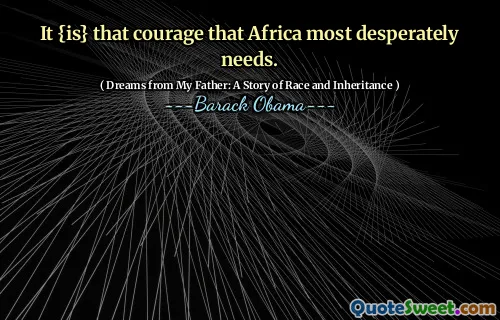
In ancient times, we were users; we used the commodities in accordance to our needs. Using is not sufficient for the modern market; it needs consumers. Consuming means consuming things much more than the natural need of humanity or of any living being.
This quote prompts a deep reflection on how human consumption has evolved over time and its impact on society and the environment. In earlier ages, people interacted with resources responsibly, using only what was necessary for their survival and livelihood. Their needs were limited, and consumption was sustainable, aligning closely with natural limits. However, in the modern era, with technological advances, globalization, and industrialization, the concept of consumption has shifted dramatically. We are now driven by a culture that incentivizes excess, often fueled by marketing and societal pressures, leading to overconsumption. This shift has significant implications: environmental degradation due to resource depletion and waste, societal inequalities, and a sense of discontentment fueled by material possessions rather than intrinsic fulfillment. The quote emphasizes that the modern economy doesn't just require consumers but desperately needs them to perpetuate continuous growth. This cycle of overconsumption goes beyond natural needs, feeding a voracious appetite for material goods that often results in ecological crises and a disconnect from the intrinsic value of natural resources. Recognizing this pattern invites us to reconsider our relationship with consumption—questioning whether our current practices serve genuine human needs or if they are merely driven by the demands of a consumer-centric system. A conscious shift towards mindful consumption can help create a sustainable future where balance and respect for natural limits are prioritized over relentless material accumulation.










